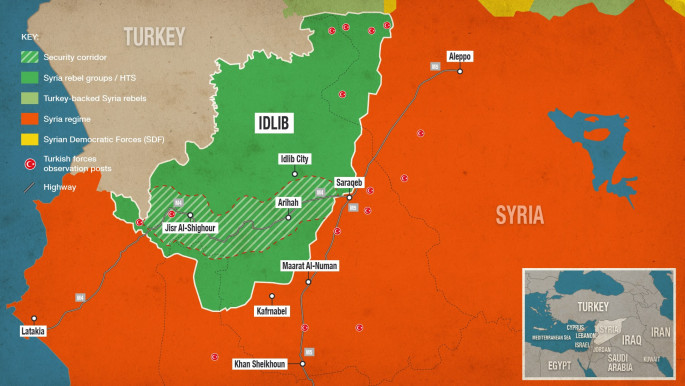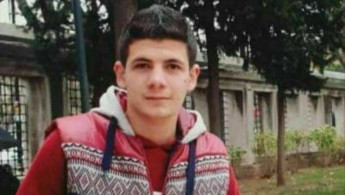Syrian activists condemn execution of teenager for 'criticising HTS leader'
Mohammed Tano was first arrested six months ago at the Bab Al-Hawa border crossing between Turkey and Syria’s HTS-controlled Idlib province, according to local media.
Some reported he was one of hundreds of Syrian refugees deported from Turkey last year, while others said he was returning to opposition-controlled Syria after his father fell ill. Tano had been in Istanbul for four years, and had a job at a restaurant.
The group said after militants searched his mobile phone they found evidence of "blasphemy", a crime that warrants the death penalty according to the extremist group's laws.
However, others have argued that the notoriously brutal HTS security forces discovered messages between Tano and a friend denouncing the organisation’s leader, Abu Mohammed Al-Jolani.
Tano was from the town of Darat Izza, an HTS stronghold in northwestern Aleppo province, close to the Turkish border.
A member of Tano’s family told the independent Syria TV channel that the teenager was killed "in cold blood".
"When we asked for verification of the charges they had handed him, they told us that they burned it," the family member added, saying they had collected the body at Idlib Central Prison.
HTS, which used to be affiliated to Al-Qaeda, dominates much of Syria's rebel-held Idlib province and parts of neighbouring Aleppo province, and has its own security apparatus and courts.
It has imposed draconian restrictions on the local population - many of whom opposition activists fleeing from other parts of Syria - and has arrested many who oppose its ideology. Protests against its rule have taken place on numerous occasions.
Earlier this month, the group executed five people in Idlib province, four of whom were accused of murder, theft, and kidnapping, and the fifth for allegedly spying on behalf of the regime.
More than 500,000 people have been killed since the Syrian conflict broke out in 2011, the vast majority as a result of Bashar al-Assad's regime bombardment of civilian areas.
Follow us on Facebook, Twitter and Instagram to stay connected





 Follow the Middle East's top stories in English at The New Arab on Google News
Follow the Middle East's top stories in English at The New Arab on Google News


